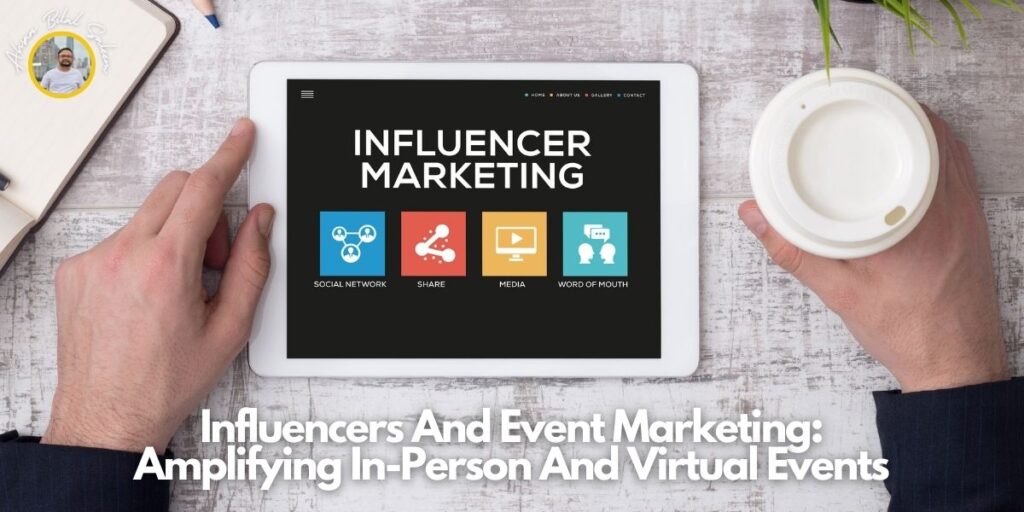In today’s digital-first world, event marketing has evolved beyond traditional methods. The blend of in-person and virtual events offers brands unprecedented opportunities to connect with their audiences. Nonetheless, in a jam-packed commercial center, catching consideration and driving commitment can be a test. Enter influencer marketing—a powerful strategy to amplify event reach, enhance brand visibility, and foster authentic connections with target audiences.
This article explores how brands can leverage influencers to boost both in-person and virtual events, from pre-event buzz to post-event engagement.
Why Influencers Matter in Event Marketing?
Influencers hold the power to connect with their followers on a personal level, making their endorsements feel authentic and trustworthy. When influencers promote an event, they don’t just bring visibility—they bring credibility. Their followers see them as trusted voices, which significantly boosts the chances of attracting a larger and more engaged audience.
Whether it’s a product launch, a conference, or a brand activation, influencers can:
- Increase event attendance
- Boost social media engagement
- Enhance brand awareness
- Drive post-event conversations
Amplifying Pre-Event Buzz with Influencers
The success of any event starts with generating excitement before the big day. Influencers can help build anticipation and ensure your event is on everyone’s radar.
Announcing the Event
Influencers can create posts or videos announcing the event, sharing details like the date, location, and key highlights. Their personal endorsement can create a sense of urgency and FOMO (Fear of Missing Out) among their followers.
Example:
A fitness influencer might announce their participation in a health and wellness expo, encouraging their followers to attend and meet them in person.
Behind-the-Scenes Content
Sharing behind-the-scenes (BTS) content is a great way to build excitement. Influencers can offer sneak peeks of event preparations, interviews with speakers, or product previews.
Example:
An influencer collaborating with a tech brand could showcase the event setup, creating curiosity about the latest product being launched.
Giveaways and Contests
Running a giveaway or contest with influencers can help drive registrations and increase social media buzz. Offering occasion tickets, selective access, or marked product can tempt adherents to take part.
Example:
A fashion influencer could run a contest giving away VIP tickets to a brand’s fashion show, encouraging followers to engage with the brand’s content.
Maximizing Engagement During the Event
On the day of the event, influencers play a pivotal role in driving real-time engagement and amplifying the event’s reach.
Live Streaming and Social Media Takeovers
Influencers can live-stream the event or take over the brand’s social media accounts, providing their followers with real-time updates and exclusive content.
Example:
A travel influencer attending a destination launch event could live-stream their experience, showcasing the venue, activities, and brand message.
Interactive Content Creation
Encourage influencers to create interactive content, such as polls, Q&A sessions, or Instagram Stories, to engage their audience and encourage participation.
Example:
An influencer at a virtual gaming event could host a live Q&A session, answering questions about the latest game releases and sharing their experience.
Branded Hashtags and User-Generated Content (UGC)
Influencers can promote branded hashtags and encourage attendees to share their own content from the event. This intensifies the occasion’s range as well as makes a feeling of local area among participants.
Example:
A beauty influencer might encourage attendees at a makeup event to post selfies using the event’s hashtag, creating a flood of user-generated content.
Extending the Impact Post-Event
The event doesn’t end when the doors close. Influencers can help brands continue the conversation and maximize the event’s impact long after it’s over.
Event Recaps and Reviews
Influencers can create post-event content, such as blog posts, vlogs, or social media reviews, sharing their experience and key takeaways.
Example:
A business influencer attending a leadership summit could write a LinkedIn article summarizing the key insights from the event.
Sharing Highlights and Testimonials
Influencers can share event highlights, photos, and testimonials, providing social proof of the event’s success and encouraging future attendance.
Example:
An influencer at a culinary event could post photos of the dishes they tried, tagging the brand and encouraging their followers to try the recipes.
Promoting On-Demand Content
For virtual events, influencers can promote on-demand access to event recordings, allowing those who missed the live event to catch up.
Example:
A tech influencer could share links to recorded sessions from a virtual conference, highlighting key sessions that their audience would find valuable.
Choosing the Right Influencers for Event Marketing
Not all influencers are created equal, and selecting the right ones is crucial for a successful campaign. Here’s what to consider:
- Relevance: Pick powerhouses whose crowd lines up with your occasion’s objective segment.
- Engagement: Look for influencers with high engagement rates, as they are more likely to drive meaningful interactions.
- Authenticity: Partner with influencers who genuinely align with your brand values and can authentically promote your event.
- Platform: Select influencers who are active on the platforms most relevant to your event and audience.
Final Thoughts
Influencer marketing is a powerful tool for amplifying both in-person and virtual events. By leveraging the reach, credibility, and creativity of influencers, brands can drive attendance, boost engagement, and create memorable experiences for their audiences. Whether it’s through pre-event buzz, real-time engagement, or post-event follow-up, influencers can help take your event marketing to the next level.
As the event landscape continues to evolve, integrating influencer marketing into your strategy is no longer optional—it’s essential for success in today’s competitive environment.
